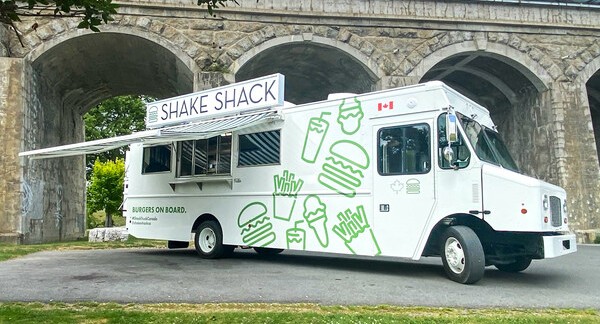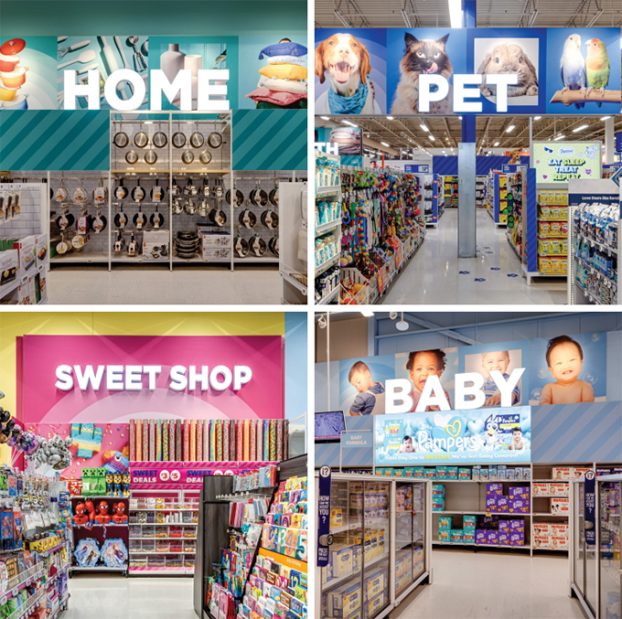Rather than focus on the uncertainty of the present, Metro has decided to rally communities to help each other get through the pandemic in its new “Together We Can” campaign.
In the minute-long spot, created by Toronto agency The Hive, people and communities find ways to stay connected while still physically distancing, such as extending their arms out as if to hold hands or neighbours making noise with pots and pans on their streets. The theme of sticking together to get to a brighter tomorrow is heightened with a cover of the song “Tomorrow” from Annie playing throughout the spot, which also features healthcare workers, as well as staff from both the Metro and Food Basics banners.
The ad debuted through Metro Ontario’s social channels and a paid digital buy earlier this week, and will be airing on TV in Ontario beginning today.
“You can see the connection between everyone that, while they are not together, we really are together,” says Candace Woods, senior director of marketing at Metro Ontario. “The ‘Together We Can’ campaign process really began with us highlighting that we are part of each community that we serve. And giving back is important to us.”
On April 6, Metro announced a $500,000 donation to Feed Ontario and United Way, along with an additional commitment to match customer donations up to $500,000 in support of its “Together We Can” toonie-fundraising campaign, asking customer to make donations at checkout. It has also instituted a $2 pay raise and income replacement plan for its employees, in effect until May 30.
The communities Metro serves span roughly 950 stores and 650 drug stores under several banners in Ontario and Quebec. “I know the pandemic has been a couple of months now, but really, what we see in our stores are sacrifices that our own colleagues and team are making every day,” Woods says. “While we know that the landscape remains incredibly uncertain, we did see hope, individual acts, effort and everybody working as a team within our stores.”
One act of kindness, referenced by Toronto mayor John Tory during his April 13 press conference, involved a customer calling multiple grocery stores over several weeks looking for Carnation brand milk, but to no avail. When she asked if they could set some aside for her when it was in stock, they told her they couldn’t. But when she reached the night supervisor at a Food Basics in Scarborough, the manager not only set some aside, but delivered it at the end of her shift – a service not offered by that store.
“The campaign really is designed around our customers’ stories – the stories that we were hearing in stores, the stories that we heard from our essential workers and the stories that customers were sharing with us online,” Woods says. “They wanted to be involved in making tomorrow better.”
Like other grocers, Metro has had to implement a number of organizational changes to answer both consumer demand and public health concerns. These have included altering hours and trying to expand its capability to fulfil a surge in online orders. Woods says that making this campaign different from other COVID-19-related campaigns was not part of the thought process. It had more to do with making the campaign “a continuation” of Metro’s story.
“Whether we’re in Thunder Bay or Ottawa, we’re seeing the same coming together across the entire province with regards to in-store acts of kindness, and this sentiment of everyone wanting to do better for their communities,” Woods says. “To see this ring true during such an unprecedented time, it’s just a continuation of our story.”
In its results for the quarter ending March 14, Metro reported a $125 million sales increase during the first two weeks of March alone as customers began stocking up in anticipation of stay-at-home situations. Same-store sales have gone up 25% year-over-year for the period from March 15 to April 11. In an investors call, CEO Eric La Flèche said customers are visiting stores less frequently, but have a bigger basket size, with private label products seeing particularly large sales. He also said Metro has paused or reduced promotional activities and sales, due to requests from suppliers looking to ease the strain on production and supply chains, but expects discount-driven shopping behaviour to increase in the later part of the year as an expected recession begins to take effect.























